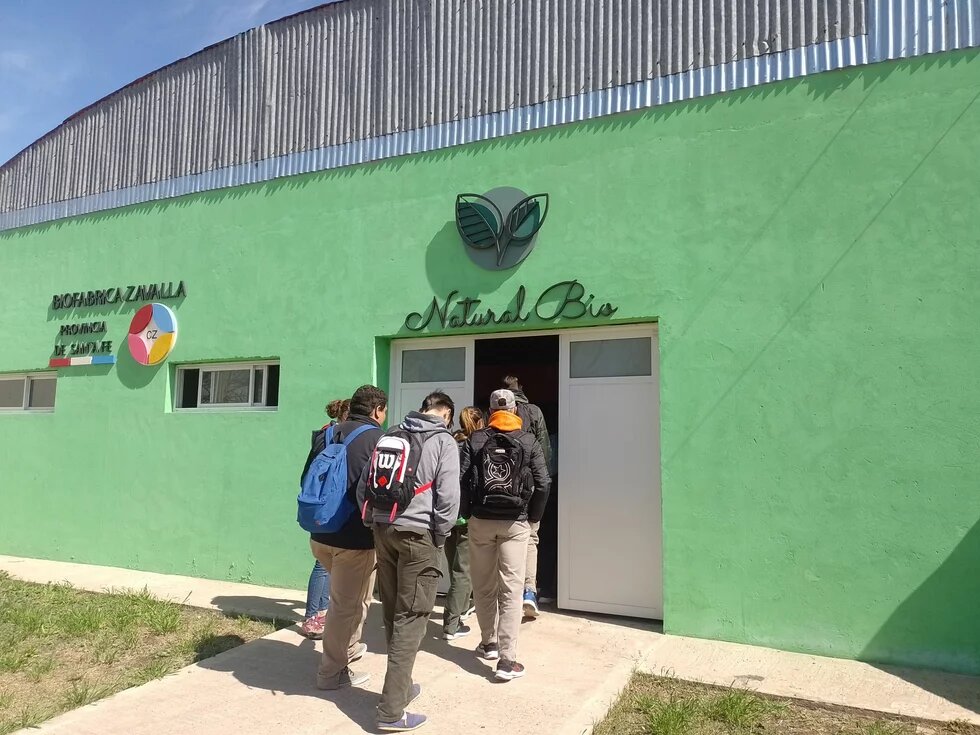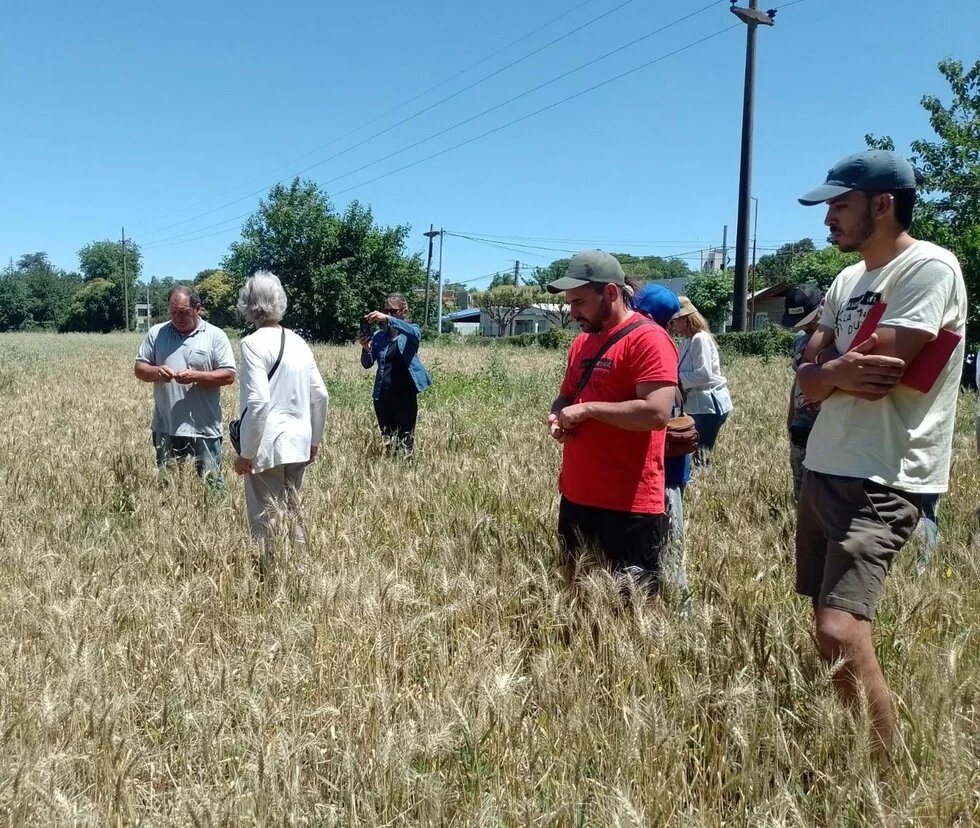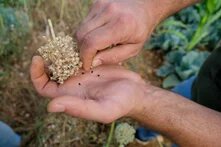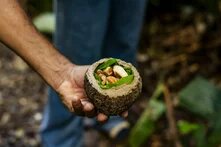
Since 2019, the conflict in the peri-urban area of Zavalla (Santa Fe, Argentina) has been transformed into a local agroecological food system. Governance, led by the Local Government of Zavalla, was key to getting those involved in the problem to work towards a healthy environment and to provide farmers with guidance and training in agroecological production.

In Argentina, the Zona Nucleus of the Pampas Region is characterized for its high productive potential and the predominance of the industrial agro-export model for commodities (soybeans, wheat, corn, and sorghum). The growth and consolidation of this model, which is technologically simplified and highly dependent on inputs with proven toxicity to the environment, has damaged natural resources and the health of communities for several decades. In this agricultural context, and due to the disorderly growth of urban centres, the so called “peri-urban conflict” appears, where agroecology becomes an opportunity to produce food without agrochemicals, to achieve acceptable profitability, and to preserve common goods, both natural and social, such as water, air, soil, biodiversity, health, knowledge, and culture.
Farmers and Residents Struggle Over Pesticides and the Future of Local Agriculture
Zavalla belongs to the department of Rosario, it is in the South of the province of Santa Fe and has a population of 8,000 inhabitants. The rapid advance of urban development into rural areas caused conflicts between residents and farmers, for which the local government had to intervene immediately. The measures commonly implemented to control agricultural production in peri-urban areas are the establishment of a buffer zone free of applications, the use of forest curtains to mitigate pesticide drift, and the control of the application of pesticides by an agricultural engineer. As these measures did not satisfy peri-urban farmers because they did not know how to produce without agrochemicals, the conflict escalated. At that time, the active commitment of the Genesis Ecology Group, a non-profit organization that has been working to protect the environment since 1987, was crucial in the search for solutions that would satisfy both farms and neighbours.
In 2019, the new Zavalla Local Government brought together stakeholders and, after several exchanges and discussions, agreed to plan and implement an agroecological food system. Promoting and developing the project was not easy and involved:
- Actions taken by the Zavalla Local Government: creation of a regulatory framework for agroecological production in peri-urban areas (Ordinance No. 40-2019); the collection of an Annual Environmental Tax from all citizens to help farms purchase agroecological inputs and implements (Ordinance No. 42-2019); provision of agricultural services at no cost; the continuous assessment by an agricultural engineer specializing in agroecology; the creation of a bio-input production plant with a gender perspective which, after a few years, became the Cooperativa NaturalBio; the provision of an agroecological mill for the production of agroecological wheat and corn; the creation of the Zavalla Santa Fe Limited Workers' Cooperative for the manufacture of agroecological foods (MASABIA) sold through short marketing channels and at fair prices.
- The support and accompaniment of organizations and institutions that contributed to the growth and sustainability of the new agri-food system: Genesis Ecology Group, Network of Communes and Municipalities Promoting Agroecology (RENAMA by its Spanish acronym) and the National Direction of Agroecology (DNAE by its Spanish initials) in force from 08/2020 to 12/2023.
- An articulation between the Local Government of Zavalla and the Faculty of Agricultural Sciences of the National University of Rosario (FCA-UNR by its Spanish initials), as the institution has an Integrated Agroecological Production System, led by an interdisciplinary team that experiments with agroecological inputs and processes with farmers, and offers a Diploma in Agroecological Transition Applied to Agri-Food Systems for the Zona Nucleus of the Pampas Region. The FCA-UNR also contributed to scientific communication and dissemination of the project at the national and international levels. This work led to recognition by the Food and Agriculture Organization of the United Nations of the relevance of the Zavalla case within the framework of the World Food Forum (Rome, 2023) and the Governance Learning Series 2025.
Agroecology Emerges as a Solution to the Peri-Urban Farming Conflict
All stakeholders worked to build respectful and supportive relationships, putting the common good before private interests. It was a great challenge to create inter-institutional spaces for collaborative work, as each institution has its own operating logic, regulatory frameworks, and administrative procedures. The type of leadership exercised by representatives from different sectors was key to resolving these difficulties1.
The peri-urban conflict was addressed by trying to respect the rural traditions of local farmers.
In May 2022, DNAE, RENAMA, the Local Government of Zavalla, and FCA-UNR organized a journey to create the Zavalla Territorial Agroecological Node. Over three days, lectures were given, workshops were held, and agroecological experiences were presented. There was significant participation from farmers, government officials, businesspeople, students, teachers, researchers, and representatives of organizations and social movements. The Argentina Society of Agroecology sponsored the event and supported the creation of the Zavalla Territorial Agroecological Node by offering training and consulting.
The peri-urban conflict was addressed by trying to respect the rural traditions of local farmers, who gradually became convinced of the importance of changing the way they produce food to protect their families and the community. The training and counselling provided by institutions were fundamental to achieving this, since agroecology is an approach that is rarely adopted by extensive agriculture in the Pampas and depends on the implementation of integrated and sustained policy instruments over time.
Currently, Zavalla is facing a change in local government, and during the campaign, the president-elect made public statements against agroecology on his social media accounts. This situation is worrying stakeholders and casting doubt on the continuity of the agroecological system. However, if the agroecological governance process was successful, then we should see that the resilience and stability achieved will be sufficient for the system to be self-managed and function autonomously.
Footnotes
- 1
Muñoz Griselda, Montico Sergio, Fernández Celina, Montero Bulacio Nicolás, Scaglione Josefina, Berardi José, Crespo Roberto Javier, Rajmil Guillermo, Benítez Claudio, Villanueva Magalí, Calvo Walter y Morales Cecilia. (2024). Articulación interinstitucional en Zavalla (Santa Fe) para la construcción de un ambiente sano. Editorial de la Facultad de Arquitectura, Urbanismo y Diseño de la Universidad Nacional de Córdoba. Periurbanos hacia el consenso 2-2022: Segundo Encuentro Nacional y Congreso Científico. (483-487)

